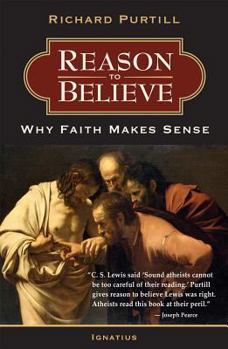Reason to Believe: Why Faith Makes Sense
Select Format
Select Condition 
Book Overview
But philosopher Richard Purtill will have none of that approach to religion. In this newly updated classic work, Purtill carefully applies the power of the mind to understanding whether there is a rational basis for certain religious beliefs. His focus is on widely held Christian beliefs, although much of what he says applies also to other religious traditions. Purtill assesses the common objections to religious belief the claims that religious tenets are nonsensical, wishful thinking, the result of gullibility, immoral, or refuted by modern discoveries. Then he considers the arguments in favor of Christian belief by studying the nature of faith, of the universe, of morality, of happiness, and the world with God in it. He also scrutinizes certain beliefs involving claims of Christian revelation -- the credentials of revelation, the idea of God, Jesus as God's Son, organized religion, and the last things (death, judgment, heaven and hell). The two appendices tackle the Christian doctrine of the Atonement and the influence of certain Christian writers on the revival of Christian belief in the 20th century. An updated For Further Reading section is included.
Reason to Believe is not a work of revealed theology or religious devotion; it is a highly readable book on the philosophy of religion, aimed at the reader who wants to think seriously about religion but who doesn't know all the philosophers' and theologians' jargon and who may or may not be a committed believer.





